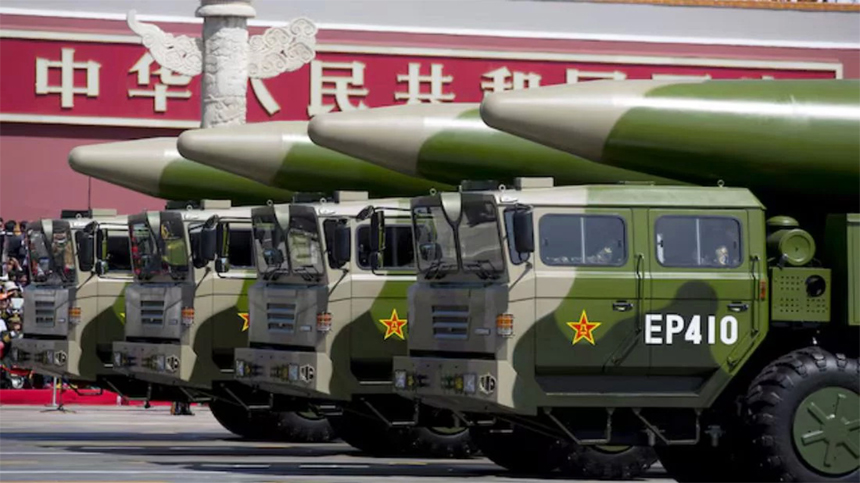Deutsche Welle :
US National Security Advisor Jake Sullivan was in Beijing this week for talks with Chinese Foreign Minister Wang Yi, and high-level military officials, as the US and China try and maintain guardrails on their growing strategic rivalry.
Sullivan’s talks on Wednesday with General Zhang Youxiam, vice chairman of China’s Central Military Commission, included arrangements to improve communication between both militaries, including between high-ranking commanders. The White House said in a statement that the first trip by a US national security advisor to China since 2016 was part of ongoing efforts to “maintain channels of communication to responsibly manage the relationship.”
As tension continues between the US and China over issues including Beijing’s expansionist moves in the South China Sea and consistent military pressure on Taiwan, avoiding miscalculations that could lead to open conflict is a shared priority. However, as China has successfully upgraded its conventional military capabilities over the past decade, concern is growing in Washington over China’s rapid expansion of nuclear weapons systems, along with Beijing’s potential for collaboration with Russia and North Korea’s nuclear arsenals.
Vipin Narang, former acting assistant secretary of defense for space policy, told the Center for Strategic and International Studies (CSIS) in August that US President Joe Biden “recently issued updated nuclear weapons employment guidance to account for multiple nuclear-armed adversaries,” in particular, the “size and diversity” of China’s nuclear arsenal.
Narang told the think tank in Washington that “we now find ourselves in nothing short of a new nuclear age” being driven by “revisionist nuclear challengers who are uninterested in arms control or risk reduction efforts.” “These challengers’ actions have forced us to shift to a more competitive approach,” Narang said, emphasizing that the growth of China’s nuclear force is a “defining feature” of a new nuclear age.
According to the Arms Control Association, a US-based organization advocating arms control policy, as of 2024, the US “is currently replacing or modernizing nearly every component of its strategic nuclear forces.”
The New York Times reported last week that Biden in March approved a “highly classified nuclear strategic plan,” that is focused on building a deterrent to China’s nuclear expansion and potential strategic collaboration with Russia and North Korea.
“Growing collaboration and evidence of collusion between them is unprecedented, forcing us to think in new and careful ways about challenges such as escalation dynamics and deterring opportunistic aggression,” Narang said, referring to China, Russia and North Korea.
According to a 2023 US Department of Defense report, China currently possesses more than 500 operational nuclear warheads, and that number is expected to double by 2030.




